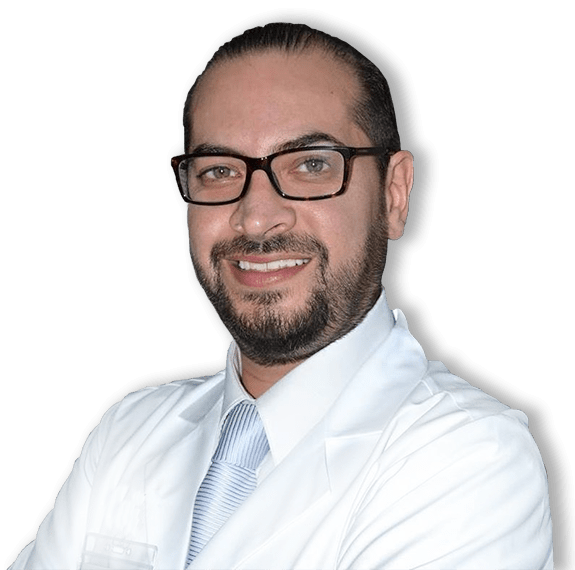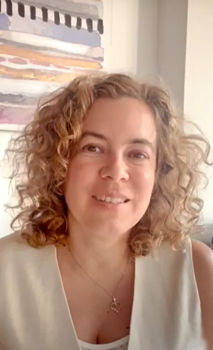Extracción de óvulos para la FIV
Obtenga más información sobre el proceso vital de la extracción de óvulos mientras se somete a una FIV en México.
El proceso de extracción de óvulos
El proceso de extracción de óvulos, particularmente para pacientes internacionales que vienen a México, es un paso meticulosamente planificado y esencial en el viaje de fertilización in vitro.
Este procedimiento está diseñado para maximizar las posibilidades de fertilización exitosa y el posterior embarazo.
Antes de la extracción, los pacientes se someten a un régimen personalizado de estimulación hormonal para asegurar la maduración de múltiples óvulos.
Esta fase de preparación es monitoreada de cerca a través de ecografías y análisis de sangre, lo que permite a Dr. Castillo Peláez optimizar el momento de la extracción de óvulos.
El proceso en sí es mínimamente invasivo y se realiza bajo sedación para garantizar la comodidad del paciente. Utilizando una aguja fina guiada por ecografía, los óvulos maduros se aspiran de los folículos ováricos y luego se entregan inmediatamente al equipo de embriología para la fertilización.
Después de la extracción, el Dr. Castillo Peláez proporciona un cuidado integral para asegurar una recuperación suave y monitorear el progreso del paciente.
Los pacientes reciben instrucciones detalladas sobre cómo manejar cualquier molestia y se les asesora sobre los siguientes pasos, incluyendo el proceso de fertilización y la transferencia de embriones.
Principales conclusiones
- El proceso de extracción de óvulos implica una planificación meticulosa y una estimulación hormonal para asegurar la maduración y recuperación exitosa de múltiples óvulos de alta calidad, cruciales para el éxito de la FIV.
- El procedimiento es mínimamente invasivo, se realiza bajo sedación y es guiado por ecografía, con óvulos maduros aspirados utilizando una aguja fina y entregados inmediatamente al equipo de embriología para la fertilización.
- Después de la extracción, los pacientes reciben atención integral, incluyendo instrucciones detalladas para manejar las molestias y orientación sobre los siguientes pasos, asegurando una recuperación suave y una preparación óptima para las etapas subsecuentes de la FIV.
Pasos de preparación antes de la extracción de óvulos
Los pasos de preparación antes de la extracción de óvulos son críticos para asegurar el éxito del proceso de FIV.
Inicialmente, los pacientes se someten a una evaluación integral, que incluye una revisión exhaustiva de la historia médica, un examen físico y evaluaciones hormonales de referencia. Esta evaluación ayuda a identificar cualquier condición subyacente que pueda afectar la respuesta a la estimulación ovárica.
Se evalúa la reserva ovárica del paciente mediante análisis de sangre que miden los niveles de hormona antimülleriana (AMH) y hormona foliculoestimulante (FSH), así como a través de un recuento de folículos antrales mediante ecografía transvaginal.
Estas evaluaciones proporcionan información esencial para adaptar el protocolo de estimulación hormonal a las necesidades individuales del paciente, optimizando las posibilidades de recuperar un número suficiente de óvulos de alta calidad.
Una vez completadas las evaluaciones preliminares, el paciente comienza la fase de estimulación ovárica. Esto implica la administración de una serie de inyecciones hormonales diseñadas para estimular los ovarios a producir múltiples óvulos maduros simultáneamente.
Típicamente, este régimen incluye gonadotropinas, que son hormonas que estimulan directamente los folículos ováricos, y antagonistas o agonistas de GnRH para prevenir la ovulación prematura.
La dosis y la combinación de estos medicamentos se ajustan cuidadosamente según la respuesta del paciente, la cual se monitorea a través de ecografías regulares y análisis de sangre que miden los niveles de estradiol.
Estas citas de monitoreo son cruciales para asegurar que los folículos se están desarrollando adecuadamente y que el momento de la inyección desencadenante, que induce la maduración final de los óvulos, sea óptimo.
En los días previos a la extracción de óvulos, el paciente recibirá una inyección desencadenante de gonadotropina coriónica humana (hCG) o un agonista de GnRH.
Esta inyección imita el aumento natural de la hormona luteinizante que desencadena la ovulación, asegurando que los óvulos alcancen su plena madurez antes de la extracción.
El momento de esta inyección es crítico y se programa exactamente 34 a 36 horas antes del procedimiento de extracción de óvulos para maximizar las posibilidades de recolectar óvulos maduros.
Durante este período, se aconseja a los pacientes evitar actividades extenuantes y seguir pautas específicas de dieta e hidratación para preparar sus cuerpos para el próximo procedimiento.
El procedimiento de extracción de óvulos explicado
El procedimiento de extracción de óvulos, también conocido como aspiración folicular, es un paso crítico en el proceso de FIV. La extracción se realiza típicamente bajo sedación consciente o anestesia ligera para garantizar la comodidad del paciente.
El proceso comienza con la inserción de una sonda de ultrasonido transvaginal para visualizar los ovarios y guiar la extracción.
Una aguja delgada, unida a la sonda de ultrasonido, se inserta cuidadosamente a través de la pared vaginal en los folículos ováricos. Cada folículo se aspira individualmente, utilizando una suave succión para recuperar los óvulos maduros.
El procedimiento completo generalmente toma entre 20 y 30 minutos, dependiendo del número de folículos a aspirar. Los pacientes son monitoreados de cerca durante todo el procedimiento para garantizar su seguridad y bienestar.
Una vez que los óvulos son recuperados, se entregan inmediatamente al equipo de embriología para su evaluación y preparación para la fertilización.
Los óvulos recuperados se colocan en un medio de cultivo especializado y se evalúan para determinar su madurez y calidad. Este paso es crucial ya que solo los óvulos maduros pueden ser fertilizados con éxito.
Después de la extracción, los pacientes son monitoreados en una área de recuperación por un corto período para asegurar que no haya complicaciones inmediatas del procedimiento.
Los síntomas comunes post-procedimiento incluyen calambres leves y manchado, y generalmente se aconseja a los pacientes que descansen por el resto del día.
Se proporcionan instrucciones detalladas post-procedimiento, incluyendo el manejo de cualquier incomodidad y los siguientes pasos en el proceso de FIV, para asegurar una recuperación suave y una preparación óptima para las etapas subsecuentes del tratamiento.
🙌 No estás solo — estamos aquí para guiarte
Tanto si estás comparando clínicas, evaluando tus opciones o tratando de entender cuál debe ser tu siguiente paso, contar con una orientación médica clara marca una gran diferencia.
Cada paciente que nos contacta habla directamente con el Dr. Alejandro Castillo Peláez o con su coordinador internacional, Michaël — para que tus preguntas sean respondidas por quienes realmente estarán involucrados en tu cuidado.
Nuestro papel es sencillo: ayudarte a acceder a tratamientos de fertilidad seguros, transparentes y personalizados en México, sin estrés ni incertidumbre.
Conozca al Dr. Alejandro Castillo Peláez
Al Dr. Castillo Peláez le gustaría ponerse en contacto con usted para una consulta.
👇🏼 Reserva una consulta
Obtenga respuestas a todas sus preguntassobre los tratamientos de fertilidad en México.
Gracias. Nos pondremos en contacto con usted pronto.
Al hacer clic en el botón anterior, acepta nuestras Condiciones de utilización y nuestra Política de privacidad.

and reproductive biologist
Historias y testimonios de pacientes
Lea las magníficas opiniones de los pacientes que han tenido la suerte de contar con el Dr. Alejandro Castillo como su especialista en fertilidad.









